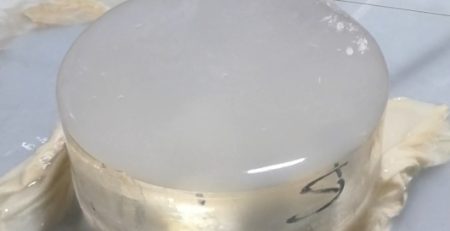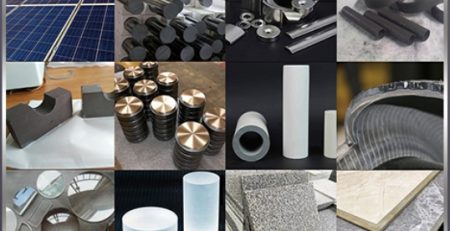A Comprehensive Guide to the Best Cutting Methods for Semiconductor Materials
In the realm of semiconductor manufacturing, precision is paramount. From silicon to compound semiconductors like gallium arsenide, the materials used in chip production require meticulous handling to ensure optimal performance. One critical aspect of this process is cutting these materials with utmost accuracy.
 The Importance of Precision Cutting in Semiconductor Manufacturing
The Importance of Precision Cutting in Semiconductor Manufacturing
- Precision cutting plays a pivotal role in semiconductor manufacturing by ensuring the integrity and performance of electronic devices. In this intricate process, even the slightest deviation can result in defects that compromise the functionality of semiconductors.
- Precision cutting techniques such as laser cutting, diamond wire saw loop, and plasma etching enable manufacturers to achieve accurate dimensions and smooth surfaces critical for semiconductor components.
- By maintaining tight tolerances and minimizing material wastage, precision cutting not only enhances the quality of semiconductor products but also contributes to efficiency and cost-effectiveness in the production process.
- Ultimately, the importance of precision cutting in semiconductor manufacturing cannot be overstated, as it underpins the reliability and functionality of the electronic devices that power our modern world.
Common Semiconductor Materials and Their Cutting Techniques
Semiconductor materials are the bedrock of modern electronics, each demanding precise cutting techniques to unleash their full potential. Among these methods, the diamond wire cutting machine emerges as a game-changer in semiconductor fabrication.
Silicon (Si):
Silicon, the workhorse of the semiconductor industry, is often cut using diamond wire cutting machines. This method ensures clean cuts with minimal damage, vital for producing integrated circuits and microchips.
Gallium Arsenide (GaAs):
 For compounds like gallium arsenide, known for its use in high-frequency applications, the diamond wire cutting machine excels. Its precision and low heat generation make it ideal for shaping GaAs components with intricate patterns.
For compounds like gallium arsenide, known for its use in high-frequency applications, the diamond wire cutting machine excels. Its precision and low heat generation make it ideal for shaping GaAs components with intricate patterns.
Gallium Nitride (GaN):
 GaN, valued for its efficiency in power electronics and LEDs, benefits from the diamond wire cutting machine’s capabilities. This technique allows for precise cutting of GaN substrates, essential for high-performance semiconductor devices.
GaN, valued for its efficiency in power electronics and LEDs, benefits from the diamond wire cutting machine’s capabilities. This technique allows for precise cutting of GaN substrates, essential for high-performance semiconductor devices.
Best Practices for Semiconductor Material Cutting
Precision Equipment:
Invest in high-quality cutting tools and machinery to ensure accurate and clean cuts.
Temperature Control:
Maintain optimal temperature conditions during cutting processes to prevent material damage.
Post-Cutting Inspection:
Conduct thorough inspections post-cutting to guarantee the quality and integrity of the materials.
Conclusion
In the dynamic landscape of semiconductor manufacturing, the cutting of materials stands as a crucial step in the production process. By adopting the best cutting methods and practices, manufacturers can ensure the quality, precision, and reliability of semiconductor devices, driving innovation and advancement in the industry.
Through this guide, we aim to shed light on the significance of precision cutting in semiconductor manufacturing and provide insights into the best practices and techniques for achieving optimal results. Remember, in the world of semiconductors, every cut counts towards a brighter, more interconnected future.












